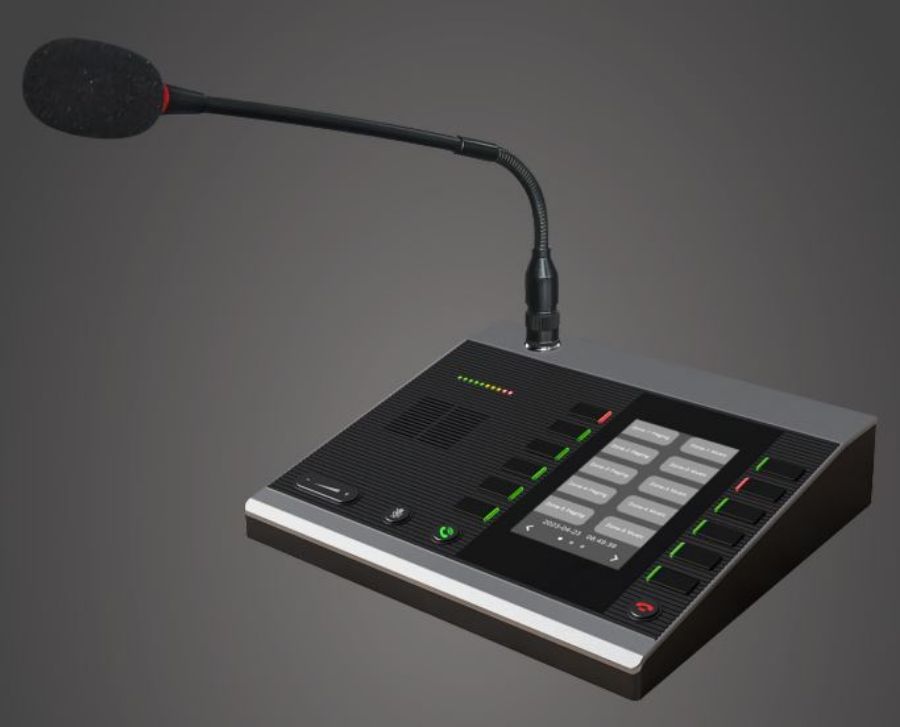
The Future is Here: Why IP Paging Systems Might Be Surpassing 100V Line Systems
In the world of public address (PA) and paging sound systems, a major technological shift is well underway. For decades, the reliable, but limited, 100V line analog system has been the standard for distributing audio across large spaces. Today, a new contender—IP audio paging—is redefining what's possible, offering superior flexibility, scalability, and efficiency.
If you’re a school administrator, a property manager for a retail mall, or a safety or security officer or guard at a large industrial site, understanding the difference is key to modernising your communication infrastructure.
Analogue 100V vs. IP: The Fundamental Differences
Traditional 100V line systems operate using a dedicated, high-voltage audio amplifier and separate cabling to power a network of speakers. It's a tried-and-true method, but it comes with limitations. Adding more speakers or creating new audio zones often requires running new, heavy-gauge cables, which can be disruptive, time-consuming, and costly.
IP paging systems, on the other hand, use your existing IT network infrastructure—your LAN, WAN, or even the internet—to transmit audio data as digital packets. Each speaker, console, or gateway is a network device, powered by a single Ethernet cable (Power over Ethernet, or PoE) that carries both data and power.
Key Benefits of IP Paging Systems
Simpler, More Cost-Effective Installation:
Less Cabling: Because IP systems use standard network cabling (like CAT5/6) and PoE technology, you can significantly reduce the amount of wiring and labor required for installation. You don't need to run high-voltage speaker lines, and you can simply plug new speakers into existing network ports.
Diverse Speaker Types: IP systems offer a wide variety of speakers tailored to any environment. This includes discreet ceiling speakers, robust wall-mounted box speakers, elegant column speakers, and powerful outdoor horn speakers—all powered directly through the network, eliminating the need for dedicated power outlets at each speaker location.
Almost Unlimited Zones and Scalability:
Software-Based Zoning: Unlike analog systems where zones are defined by physical wiring, IP systems manage zones and groups through software. This means you can create, change, or merge zones instantly from a central management platform without any rewiring. You can even target a single speaker or a group of speakers regardless of their physical location.
Easy Expansion: As your organization grows, expanding the system is as simple as adding more speakers to your network. There's no need to overhaul the entire system, making it a future-proof investment.
Two-Way Communication and Enhanced Safety:
Integrated Microphones: Some IP speakers and can be used like intercoms and come equipped with integrated microphones, or can have a microphone added. This allows for two-way communication, enabling students to talk to a teacher, a customer to speak with a store manager, or an employee to report a safety concern from the nearest speaker.
Talk-Back Functionality: This "talk-back" feature is crucial for security and convenience. For example, a student could press a button on a classroom speaker to speak with the front office during an emergency.
Seamless Integration with VoIP Phone Systems:
Universal SIP Protocol: IP paging systems often use the same open-standard SIP protocol as many modern VoIP phone systems. This allows for seamless integration, transforming any phone into a paging startpoint.
Simplified Paging from Any Phone: With this integration, you can make announcements to an entire campus or a single zone by simply dialing a specific extension on your desk phone or mobile app.
Integration with Security Systems and IP Cameras:
ONVIF Compatibility: Some IP speakers are ONVIF compatible, allowing them to integrate directly with your security system's video management software (VMS) and IP cameras.
Event-Triggered Announcements: This powerful feature enables security staff to broadcast live or pre-recorded messages directly through the speakers from a central control room. For example, if a security camera detects an intruder after hours, a security officer can immediately deliver a warning: "Warning: we can see you are trespassing and the police have been called. Leave the area immediately."
Ease of Remote Support and Management:
Centralised Control: IP systems can be managed remotely via a web-based interface or dedicated software. This allows IT staff to configure settings, monitor device status, and troubleshoot issues from anywhere, saving time and operational costs.
Real-time Monitoring: You can be alerted immediately if a speaker goes offline, ensuring your system is always operational when you need it most.
Ideal Use Cases for IP Paging
IP audio paging systems are perfect for any large or multi-site environment that requires flexible and reliable communication.
Schools and Universities: Automated school bells, class change alerts, and daily announcements can be scheduled and managed effortlessly. During an emergency, a principal can initiate an automated lockdown message to specific zones from their phone or computer, while staff can use two-way intercoms to communicate with the main office.
Retail and Shopping Malls: Play scheduled background music, broadcast promotional announcements to different stores or zones, and deliver critical security or emergency messages to specific areas without disturbing the entire complex.
Warehouses and Industrial Complexes: Ensure safety by delivering clear, targeted messages in noisy or sprawling environments. The system can be integrated with sensors to automatically announce warnings in the event of a chemical leak or other hazard.
Transportation Hubs (Train/Bus Terminals): Manage announcements for multiple platforms or gates from a single console, providing timely updates to passengers and staff.
Contact Edwards Sound
Talk to Edwards About Your Paging System Requirements.






















































